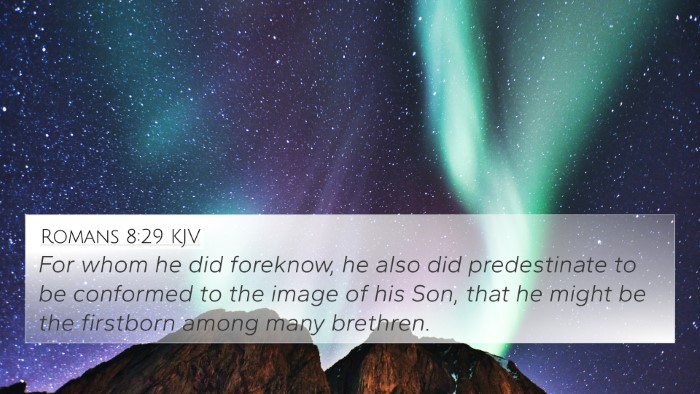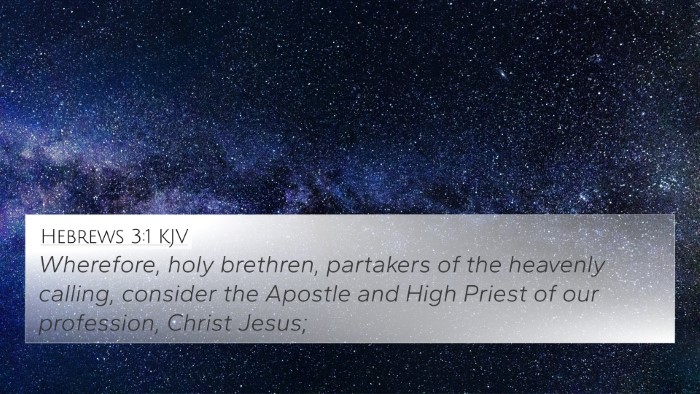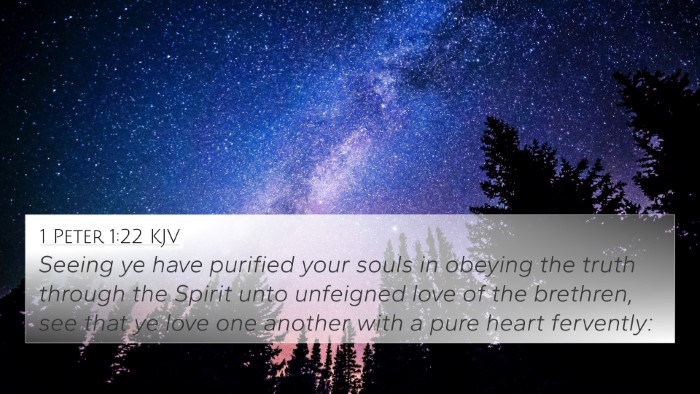Bible Verse Meaning: Romans 16:14
Verse: "Greet Asyncritus, Phlegon, Hermes, Patrobas, Hermas, and the brethren who are with them."
Overview: Romans 16:14 is part of the Apostle Paul's concluding remarks in his letter to the Romans. In this section, Paul conveys personal greetings to individuals and groups within the Roman church, reflecting his intimate connection with fellow believers.
Interpretation Insights
This verse highlights the communal aspect of the early Christian church, illustrating how believers supported and recognized one another. The names mentioned are significant for several reasons:
- Names of Individuals: The individuals Paul refers to are believed to have taken part in the early church's ministry and may represent different backgrounds and roles within the Roman community.
- Unity in Diversity: The variety of names signifies the diverse yet united nature of the Christian faith, as followers from various backgrounds came together to form the body of Christ.
- Personal Connections: Paul's mention of these individuals indicates a close personal relationship and his appreciation for their contributions to the church.
Bible Cross-References
This verse connects with several other passages, strengthening the themes of community and fellowship in the early church. Here are some cross-references:
- Romans 12:5: "So we, being many, are one body in Christ, and individually members of one another."
- 1 Corinthians 12:12: "For as the body is one and has many members, but all the members of that one body, being many, are one body, so also is Christ."
- Philippians 1:3: "I thank my God upon every remembrance of you."
- Colossians 4:10: "Aristarchus, my fellow prisoner, greets you, with Mark the cousin of Barnabas."
- 1 Thessalonians 5:26: "Greet all the brethren with a holy kiss."
- 2 Timothy 4:19: "Greet Priscilla and Aquila, and the household of Onesiphorus."
- Titus 3:15: "All who are with me greet you. Greet those who love us in the faith."
Commentary Insights
Commentators provide various perspectives on Romans 16:14, emphasizing the importance of each name and the broader implications:
- Matthew Henry: He notes the significance of friendship in the ministry and how personal relationships are vital in the Christian community.
- Albert Barnes: Barnes reflects on the diversity of the names mentioned, indicating a potential representation of different groups within the early church.
- Adam Clarke: Clarke emphasizes how greeting one another highlights the mutual love and unity among believers in Christ, serving as an example for contemporary Christian conduct.
Thematic Connections
The themes observed in Romans 16:14 are echoed throughout the New Testament, illustrating how believers are called to maintain relationships within their communities:
- Fellowship: The emphasis on greetings denotes a shared bond among believers, inviting reflection on how communities nurture their relationships.
- Service: Each individual mentioned likely served unique roles, inviting believers today to contemplate their contributions to their spiritual families.
- Spiritual Unity: As Paul connects with these individuals, believers are reminded of their shared mission in spreading the Gospel.
Concluding Thoughts
Romans 16:14 reminds us of the importance of recognizing and honoring our fellow believers. By understanding the relationships that Paul cultivated, we can draw lessons for our interactions in the modern church. The thematic connections, cross-references, and commentary insights encourage us to actively engage in our communities and foster genuine relationships in Christ.
Tools for Deeper Study
To further explore the connections in the Bible, consider utilizing:
- **Bible Concordance:** Useful for finding specific words and themes across scriptures.
- **Cross-Reference Bible Study Guides:** Helpful tools to facilitate the exploration of linked passages.
- **Comprehensive Bible Cross-Reference Materials:** Resources to identify related verses and contextual themes.
Engagement and Reflection
As believers examine this verse, they are encouraged to reflect on the importance of community, service, and spiritual unity within their own contexts. How does your church acknowledge and celebrate the contributions of its members?
Whether you’re studying the depth of Paul's ministry or seeking cross-references for sermon preparation, Romans 16:14 provides a rich foundation for understanding the interconnectedness of belief and community.






